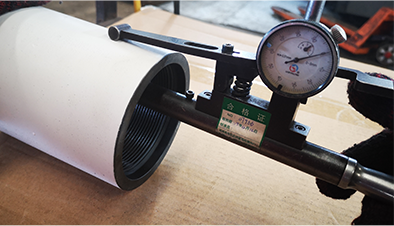- Afrikaans
- Albanian
- Amharic
- Arabic
- Armenian
- Azerbaijani
- Basque
- Belarusian
- Bengali
- Bosnian
- Bulgarian
- Catalan
- Cebuano
- Corsican
- Croatian
- Czech
- Danish
- Dutch
- English
- Esperanto
- Estonian
- Finnish
- French
- Frisian
- Galician
- Georgian
- German
- Greek
- Gujarati
- Haitian Creole
- hausa
- hawaiian
- Hebrew
- Hindi
- Miao
- Hungarian
- Icelandic
- igbo
- Indonesian
- irish
- Italian
- Japanese
- Javanese
- Kannada
- kazakh
- Khmer
- Rwandese
- Korean
- Kurdish
- Kyrgyz
- Lao
- Latin
- Latvian
- Lithuanian
- Luxembourgish
- Macedonian
- Malgashi
- Malay
- Malayalam
- Maltese
- Maori
- Marathi
- Mongolian
- Myanmar
- Nepali
- Norwegian
- Norwegian
- Occitan
- Pashto
- Persian
- Polish
- Portuguese
- Punjabi
- Romanian
- Russian
- Samoan
- Scottish Gaelic
- Serbian
- Sesotho
- Shona
- Sindhi
- Sinhala
- Slovak
- Slovenian
- Somali
- Spanish
- Sundanese
- Swahili
- Swedish
- Tagalog
- Tajik
- Tamil
- Tatar
- Telugu
- Thai
- Turkish
- Turkmen
- Ukrainian
- Urdu
- Uighur
- Uzbek
- Vietnamese
- Welsh
- Bantu
- Yiddish
- Yoruba
- Zulu
Bull Plug vs Hex Plug
Bull Plug vs. Hex Plug A Comprehensive Comparison
In the world of plumbing and piping systems, various components play crucial roles in ensuring efficient fluid flow, maintaining pressure, and providing secure seals. Among these components, bull plugs and hex plugs are commonly utilized to close off openings in pipes. Understanding the differences between these two types of plugs is essential for selecting the right one for your specific application.
What is a Bull Plug?
A bull plug is a type of fitting characterized by its rounded end. It is typically used to close the ends of pipes or fittings while offering a smooth surface. Bull plugs are most commonly made from materials such as brass, stainless steel, or plastic. Their design allows for easy installation and removal, making them ideal for temporary closures. Additionally, bull plugs are often used in applications where a seamless appearance is desired, as their rounded edges can create a more polished look.
What is a Hex Plug?
In contrast, a hex plug features a hexagonal shape that provides increased grip and torque during installation. This design allows for the use of standard tools, such as wrenches, which can facilitate easier tightening and loosening. Hex plugs are also made from similar materials as bull plugs, but their sharp edges and angles provide better engagement when securing them in place. This makes hex plugs particularly suited for permanent or long-term applications where a robust seal is required.
bull plug vs hex plug

Applications and Selection Criteria
When deciding between a bull plug and a hex plug, several factors need to be considered. If the application calls for temporary sealing and aesthetics are important, a bull plug may be the better choice. However, if a long-term solution is required, where the risk of leakage must be minimized, a hex plug would be more appropriate due to its superior grip.
Additionally, the specific requirements of the fluid being contained need to be evaluated. For high-pressure applications or aggressive chemicals, the design and material of the plug could influence its performance. Hex plugs can often handle higher pressures due to their tighter seals.
Conclusion
Both bull plugs and hex plugs serve vital roles in piping systems, but choosing the right one depends on the specific needs of the project. Whether you need a temporary solution or a permanent fixture, understanding the characteristics and applications of each plug type will ensure the integrity and efficiency of your plumbing systems. By carefully evaluating the requirements of your application, you can select the most suitable plug for optimal performance.
-
Tubing Pup Joints: Essential Components for Oil and Gas OperationsNewsJul.10,2025
-
Pup Joints: Essential Components for Reliable Drilling OperationsNewsJul.10,2025
-
Pipe Couplings: Connecting Your World EfficientlyNewsJul.10,2025
-
Mastering Oilfield Operations with Quality Tubing and CasingNewsJul.10,2025
-
High-Quality Casing Couplings for Every NeedNewsJul.10,2025
-
Boost Your Drilling Efficiency with Premium Crossover Tools & Seating NipplesNewsJul.10,2025







